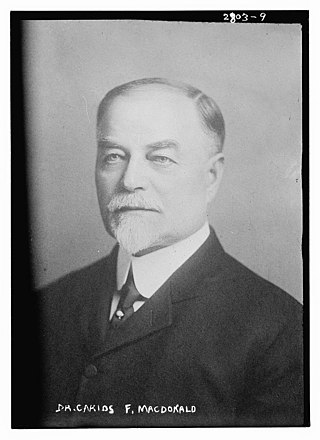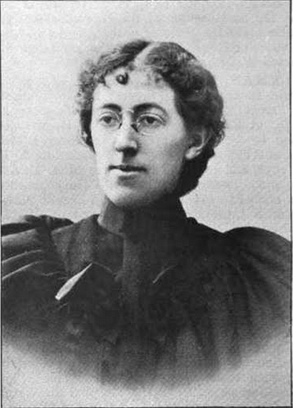Related Research Articles
Campaign finance laws in the United States have been a contentious political issue since the early days of the union. The most recent major federal law affecting campaign finance was the Bipartisan Campaign Reform Act (BCRA) of 2002, also known as "McCain-Feingold". Key provisions of the law prohibited unregulated contributions to national political parties and limited the use of corporate and union money to fund ads discussing political issues within 60 days of a general election or 30 days of a primary election; However, provisions of BCRA limiting corporate and union expenditures for issue advertising were overturned by the Supreme Court in Federal Election Commission v. Wisconsin Right to Life.
Ilion is a village in Herkimer County, New York, United States. The population was 7,790 at the 2017 census.
Mohawk is a village in Herkimer County, New York, United States. The population was 2,731 at the 2010 census. The village was named after the adjacent Mohawk River.
The Lunacy/Lunatics Act 1845 and the County Asylums Act 1845 formed mental health law in England and Wales from 1845 to 1890. The Lunacy Act's most important provision was a change in the status of mentally ill people to patients.
Albert Warren Ferris was an American psychiatrist, born in Brooklyn, New York.

The Crownsville Hospital Center was a psychiatric hospital located in Crownsville, Maryland. It was in operation from 1911 until 2004.

William Pryor Letchworth was an American businessman notable for his charitable work, including his donation of his 1,000-acre estate to the State of New York which became known as Letchworth State Park.
The Commissioners in Lunacy or Lunacy Commission were a public body established by the Lunacy Act 1845 to oversee asylums and the welfare of mentally ill people in England and Wales. It succeeded the Metropolitan Commissioners in Lunacy.

Yarra Bend Asylum was the first permanent institution established in Victoria that was devoted to the treatment of the mentally ill. It opened in 1848 as a ward of the Asylum at Tarban Creek in New South Wales. It was not officially called Yarra Bend Asylum until July 1851 when the Port Phillip District separated from the Colony of New South Wales. Prior to the establishment of Yarra Bend, lunatic patients had been kept in the District's gaols. Yarra Bend was proclaimed an Asylum under the provisions of the Lunacy Statute 1867 (No.309) in the Government Gazette in October 1867.
Mohansic State Hospital was a hospital which existed near Yorktown Heights in Westchester County, New York.

Carlos Frederick MacDonald, M.D. was a psychiatrist, and the chairman of the New York State Commission in Lunacy from 1880 to 1896. He was involved in the design of the first electric chair and examined Leon F. Czolgosz, pronouncing him sane enough to be executed in the electric chair after the assassination of President William McKinley in 1901. He was President of the American Psychiatric Association from 1913 to 1914. He was an expert witness at the trials of Harry Thaw and Harrison W. Noel.

The lunatic asylum was an early precursor of the modern psychiatric hospital.

Winnebago Mental Health Institute (WMHI), formerly the Winnebago State Hospital, is a psychiatric hospital near Oshkosh, Wisconsin, United States located in the unincorporated community of Winnebago, Wisconsin.

Andrew D. Morgan was a lawyer and president of Ilion, New York, and chairman of the New York State Hospital Commission from March 27, 1914, to April 21, 1921.
The Mental Deficiency Act 1913 was an act of Parliament of the United Kingdom creating provisions for the institutional treatment of people deemed to be "feeble-minded" and "moral defectives". "It proposed an institutional separation so that mental defectives should be taken out of Poor Law institutions and prisons into newly established colonies."
Sir Charles Hubert Bond KBE FRCP was a British psychiatrist and mental health administrator.
Owen Copp, M.D. (1858-1933) was an American physician and a psychiatric administrator. He was president of the American Psychiatric Association from 1921 to 1922, and proposed a progressive program in mental health in the United States.

Clarissa Caldwell Lathrop was an American social reformer and autobiographer. Her prominence came from her remarkable experience, being confined and unlawfully imprisoned in the Utica Lunatic Asylum for 26 months, through a plot of a secret enemy to kill her. She eventually managed to communicate with James Bailey Silkman, a lawyer who, like herself, was confined in the same asylum under similar circumstances. He succeeded in obtaining a writ of habeas corpus, and Judge George G. Barnard of the New York Supreme Court pronounced Lathrop sane and unlawfully incarcerated.

Anne Hazen McFarland, M.D. was an American physician and medical journal editor.
Mohawk Valley General Hospital was an 84-bed hospital owned "by two adjoining towns." It was located in the village of Ilion, New York, a part of Herkimer Country.
References
- ↑ New York State Hospital Commission. 1916.
By the adoption in 1894 of the new Constitution, which took effect on January 1, 1895, the State Commission in Lunacy became a constitutional body, vested with exclusive jurisdiction over all institutions for the care and treatment of the insane, epileptics and idiots expressly excepted. The Legislature. is empowered to confer additional powers and duties upon the Commission, but all laws existing at the date of the adoption of the Constitution, so far as they do not conflict with its provisions, are preserved. By the provisions of chapter 121 of the Laws of 1912, the State Commission in Lunacy is designated the State Hospital Commission. The Commission consists of three members appointed by the Governor (by and with the consent of the Senate) for terms of six years, with the exception of Medical Commissioner, who serves during good behavior. No private institution for the insane can lawfully exist without a license from the Commission. By chapter 32 of the Laws of 1909, the Commission is given supervision over the expenditures of all State hospitals for the insane; no disbursements for any purpose can be made by these institutions except upon quarterly estimates, which must be submitted to the Commission for revision and approval. All vouchers for the maintenance and building improvements account of the State hospitals are paid through the office of the Commission. There is also a New York State Bureau of Deportation which acts under the direction of the Commission in securing the return to other countries and states of alien and nonresident insane persons who have not obtained a legal residence in New York ...
- ↑ Dowbiggin, Ian (1997). Keeping America Sane. New York: Cornell University Press. pp. 49, 56, 212. ISBN 978-0801483981.
- 1 2 Sanger, William; Bissell, Herbert; May, James (1913). State of New York, State Hospital Commission, Twenty-fourth Annual Report, October 1, 1911 to September 30, 1912. Albany, New York: J. B. Lyon Company. p. 44.
- ↑ "Lunacy Board's Powers. Managers Can Make No Expenditures Without Its Consent. President MacDonald of the State Commission Ridicules the Idea, that the Patronage of the Hospitals for the Insane Will Go to Politicians" (PDF). New York Times . May 15, 1896. Retrieved 2015-04-22.
Dr. Carlos F. MacDonald, President of the State Commission in Lunacy, yesterday ridiculed the notion that the patronage of the State hospitals for the insane would be transferred to politicians through the operation of the Horton act, which was signed by Gov. Morton on Wednesday. ...
- ↑ "Andrew D. Morgan". The New York red book. 1916.
Andrew D. Morgan, Member of the State Hospital Commission, is a lifelong resident of Ilion, Herkimer county, N. Y., and is a former postmaster, and leading merchant of that village. Mr. Morgan is a member of the Herkimer County Bar and has served as president of the village of Ilion. Mr. Morgan is married, and is about forty-eight years of age.
- ↑ "Col. Sanger Resigns Office. Leaves State Hospital Commission on Account of His Health" (PDF). New York Times . January 4, 1913. Retrieved 2015-04-22.
- ↑ "Harriet May Mills". Harriet May Mills House. Retrieved 2020-11-12.